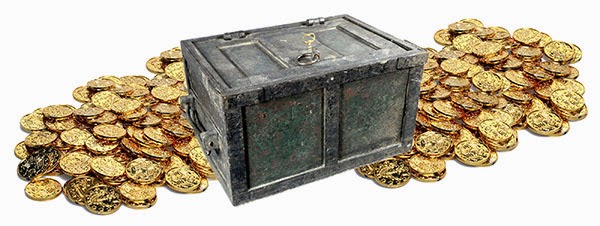There is an adage residing in a dusty old book somewhere that goes like this…
"...When your OUTGO exceeds your INCOME,
then your UPKEEP will be your DOWNFALL..."
…Which, when translated into regular everyday common sense, simply echoes the hard-won wisdom and warning of countless forbearers; that if you spend more than you make… you’re going to end up in deep, deep trouble!
It’s also a truism… a cause and effect formula that can be applied to any financial undertaking. Unfortunately, perhaps due to it’s proverbial “old folks” nature, it's also a message that is not quickly, or easily, taken to heart.
In particular, it seems that a fast-food, get rich quick, internally focused, entitlement-oriented society such as the one we’ve created for ourselves today, is far too anxious and eager to get it now (whatever IT may be); while being enthusiastically encouraged by the folks loaning the cash or credit, to pay much later. In the process of acquiring "stuff", we often just glance over the contractual niceties such as payment clauses, which typically assures our indebtedness for much, much more, and for much, much longer, than we ever imagined was possible.
Regretfully, the tragic consequence of our ignorance regarding increasing debt is akin to placing a frog in a pot of lukewarm water, then heating it over a period of time. Generally, the amphibian is blissfully oblivious to the changes until just before it is boiled to death.
The OUTGO axiom also holds true for business undertakings as small as mom and pop outlets to those of large corporations. And, most critically, it’s tenet applies upwardly to the economics of an entire nation. Accordingly, it would seem important then, that when the first serious media bubbles appear in a pot of warming fiscal water, the frog might catch on that something is seriously amiss.
A fairly dramatic example currently gurgling in the cooker is that of the oil industry and the undulating ripple effect it is generating for its ocean of interconnected companies. Suddenly, for whatever international upheaval, political conflict, or world economic reason, perceived demand for oil has dropped; and within a period of just over 4 months, the price of a barrel of crude has fallen from a profitable high of almost $100.00 to today’s market of $46.57. The heat of economic instability is turned up, and financial waters get warmer and warmer.
When the bid and ask for crude was floating high, companies worldwide saw exceptional profits to be made and willingly committed their businesses to weighty amounts of readily available long range debt in exchange for a piece of the action. Subsequently, despite quality management techniques and years of business acumen, mega-corporations and wildcatters alike extended their credit lines to the max, almost consciously ignoring historical economic lessons. Equipment and personnel were contracted by big and small, and everyone involved in sucking up black gold tossed caution to the wind in a fevered, sure-fire bet to make nothing but money, money, money!
Regretfully now, the aphorism is coming back to haunt us. Today, despite a momentary appreciation for a tank of cheap gas, for many companies, the cost of production (outgo) is far more than earnings (income). Ongoing loans for operating equipment and employee wages (upkeep) have begun to generate a wave of primary and sub-related layoffs, foreclosures and bankruptcies (downfall).
A number of economists even indicate that if the production price of crude falls into the low twenties then theoretically a domino effect of larger and larger company failures and closings will tip the scales of our financial system, possibly cause a monetary collapse, and boil the frog!
At the moment, however, the critter in the pot is only experiencing mild discomfort from what it probably perceives is simply an unexpected hot refreshment to its bathwater. It remains content to lay back and endure what is likely only a fleeting increase in temperature.
But... What if it's not?
Perhaps there is hope yet that it might awake and arise??? - J.
Article Copyright J. Michael Lyffe - 2015













